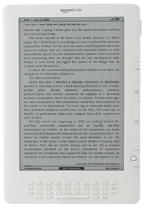
 Random Tuesday evening notes
Random Tuesday evening notes 
 A few people -- including my partner in the Rebooting The News podcast, Jay Rosen -- called foul on the piece I wrote about Google's end-user app dev tool. When I used the phrase "Goodbye programmers" in the paragraph about The Last One, they inferred I was saying that the other tools, Hypercard, COBOL and Google's App Designer, were also claiming to do away with the need for programmers. It was not my intention to draw that connection, but it is understandable that people did. If I had it to do over I would have left that bit out of the piece, because it's an unnecessary distraction from my main point.
A few people -- including my partner in the Rebooting The News podcast, Jay Rosen -- called foul on the piece I wrote about Google's end-user app dev tool. When I used the phrase "Goodbye programmers" in the paragraph about The Last One, they inferred I was saying that the other tools, Hypercard, COBOL and Google's App Designer, were also claiming to do away with the need for programmers. It was not my intention to draw that connection, but it is understandable that people did. If I had it to do over I would have left that bit out of the piece, because it's an unnecessary distraction from my main point.
To be clear, while it's true that it was said of previous user-programming tools, including COBOL and Hypercard, that they would do away with the need for programmers (because users could create their own programs, without programming), as far as I know that claim was not made for Google's tool.
However, whether Google made the claim or not, smart marketers know that users will draw that conclusion on their own, as our mutual friend Jeff Jarvis, did. "Ah, but it's not a developer tool. It eliminates the developer. It democratizes development, eh? All can publish. All can develop."
The end of the priesthood of programmers is a lofty goal, one I totally share. However don't be misled into believing that a tool that turns users into programmers is going to accomplish that goal, or even further it. The only way to do that is to stop cutting corners and don't give control of your work to tech companies. But that's as likely to happen as people voluntarily giving up air conditioning because it creates global warming, creating the need for more air conditioning, etc etc. We don't seem inclined, as a species, to incorporate the long-term into our actions of today.
BTW, a commenter on RBTN, Les Bain, says: "I have been in IT for many years. The COBOL manual I had in 1968 described COBOL as a language that secretaries could use to generate systems and that programmers would soon be obsolete."
Programmers who came up when I did encountered the belief that our work was less than clerical. The priesthood then were the suits! ![]()
In other news, I'm using my iPad more and more as a substitute for a Kindle. So I decided it was time to get the latest Kindle, which I ordered this evening from Amazon. The advantages of the Kindle appear to be: 1. Lighter weight. 2. 3G access included in the price. 3. You can read it in direct sunlight (allowing me to take it to the park, and turn off the AC). 4. Better battery life (as the iPad gets older, surprise surprise, its battery gets less amazing. How did I not see that coming! Heh. A little sarcasm.) I'll let you know how it goes.
Since reading a great piece in the Washington Post about air conditioning and how we used to get by without it, I've been noticing more how excessively chilled stores and offices are. I noticed it today when I went to NYU, and when I went to an eyeglass store, and when I went to a movie. However I noticed that the Gawker offices were not excessively cooled, yet were still quite comfortable. I think we could raise the thermostat a bit in the summer, just to see what it used to be like. Open the windows at night. Sweat a little more -- it wouldn't hurt. The piece talks about people bringing space heaters to work in Washington in July. When they write the epitaph of our civilization...



